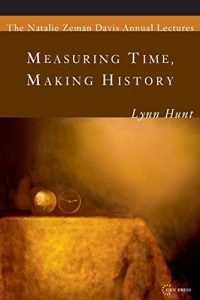Time is the crucial ingredient in history, and yet historians rarely talk about time as such. These essays offer new insight into the development of modern conceptions of time, from the Christian dating system (BC/AD or BCE/CE) to the idea of “modernity” as a new epoch in human history.
Are the Gregorian calendar, world standard time, and modernity itself simply impositions of Western superiority? How did the idea of stages of history culminating in the modern period arise? Is time really accelerating? Can we—should we—try to move to a new chronological framework, one that reaches back to the origins of humans and forward away or beyond modernity? These questions go to the heart of what history means for us today. Time is now on the agenda.
Are the Gregorian calendar, world standard time, and modernity itself simply impositions of Western superiority? How did the idea of stages of history culminating in the modern period arise? Is time really accelerating? Can we—should we—try to move to a new chronological framework, one that reaches back to the origins of humans and forward away or beyond modernity? These questions go to the heart of what history means for us today. Time is now on the agenda.






